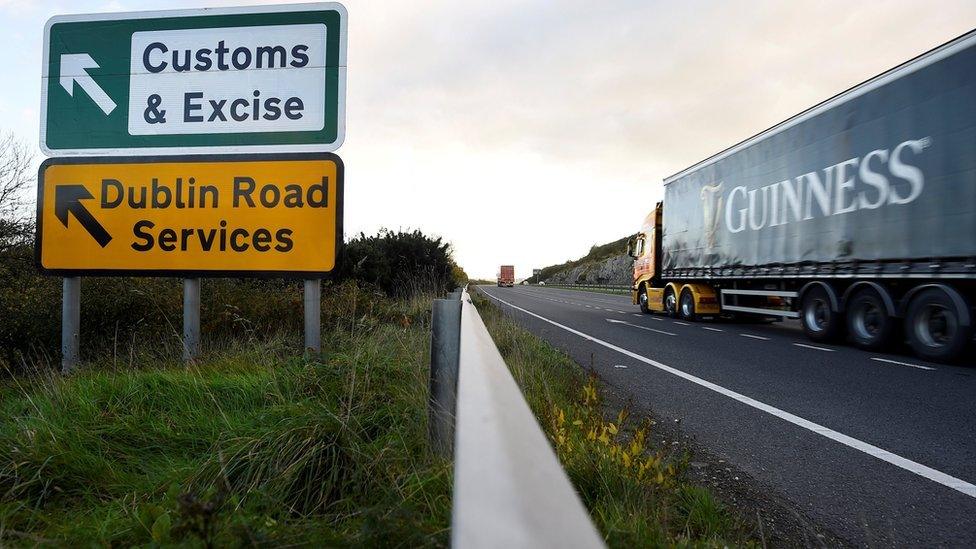Tory leadership: What do would-be PMs mean for NI?
- Published
- comments
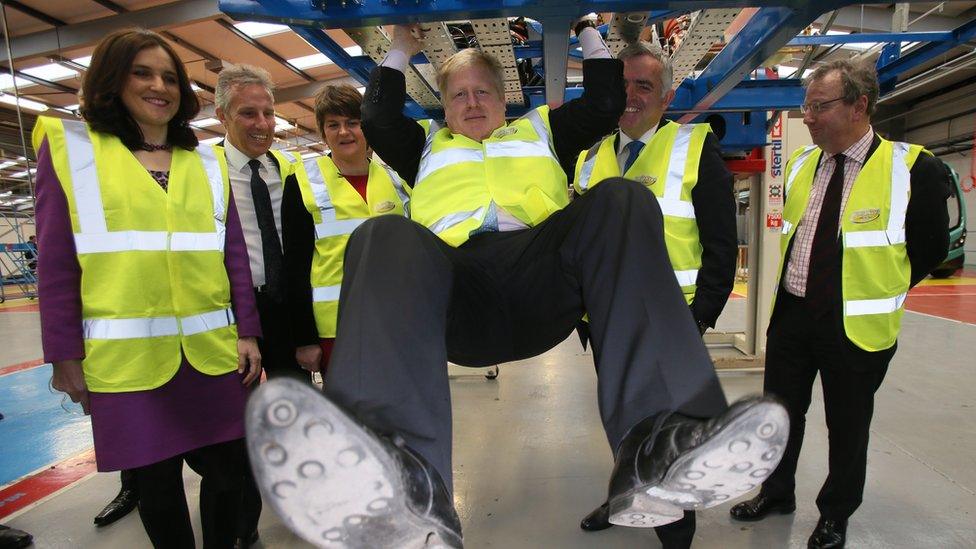
Boris Johnson brought the spotlight to Ballymena when he opened a plant to build parts for his "Boris buses"
As the race to be the next Tory leader is whittled down to the final two candidates, here is what a Boris Johnson or a Jeremy Hunt premiership could mean for Northern Ireland.
Mr Johnson's main link to Northern Ireland used to be his red buses.
In 2013, the then London mayor opened a Wrightbus plant in Ballymena, County Antrim, where parts for them are made.
Few would have bet that within six years he would be a frontrunner to become prime minister.
Battling him for the keys to Number 10 is Mr Hunt, the foreign secretary who insists he's best placed to strengthen the union of the United Kingdom.
But what are their positions on central issues such as the political crisis in Stormont, the Tories' confidence-and-supply partners the Democratic Unionist Party (DUP) and the Irish border question?
Brexit and the backstop
This will be key for whoever takes over in Number 10 but both candidates face an uphill battle to get their preferred Brexit deal through Parliament.
The backstop is the insurance policy to maintain a seamless border between Northern Ireland and the Republic of Ireland: opposition to it brought Theresa May's time in office to an abrupt end.
Mr Johnson has referred to it as a "monstrosity" that wipes out the UK's sovereignty and he has called for the backstop to be removed from the withdrawal deal.
He believes the EU can be persuaded to reopen the agreement, but says the UK should still prepare for a no-deal Brexit.
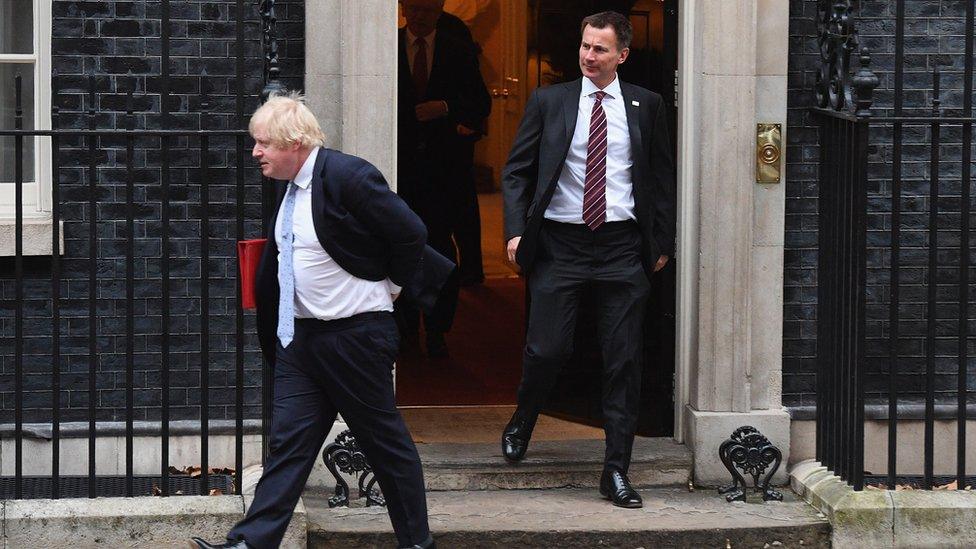
Boris Johnson and Jeremy Hunt both believe they can succeed where Theresa May failed
Mr Hunt has said the EU accepts that the backstop will never be approved by Parliament.
He maintains he has had conversations with European leaders who "understand that the backstop will not get through Parliament - they may not have understood that before".
He proposes sending a new negotiating team team to Brussels, which would include representatives of the European Research Group - the group of Conservative MPs who support harder forms of Brexit - and members of the DUP.
Many in the Conservative Party believe a new personality at the top can change hearts and minds in Europe but the EU has insisted that the backstop is not up for renegotiation.
Mixed feelings from the DUP?
The DUP is keeping quiet about who it would like to see move into Downing Street.
The party is no stranger to the "Boris effect": the Conservative MP was the keynote speaker at the DUP conference last year.
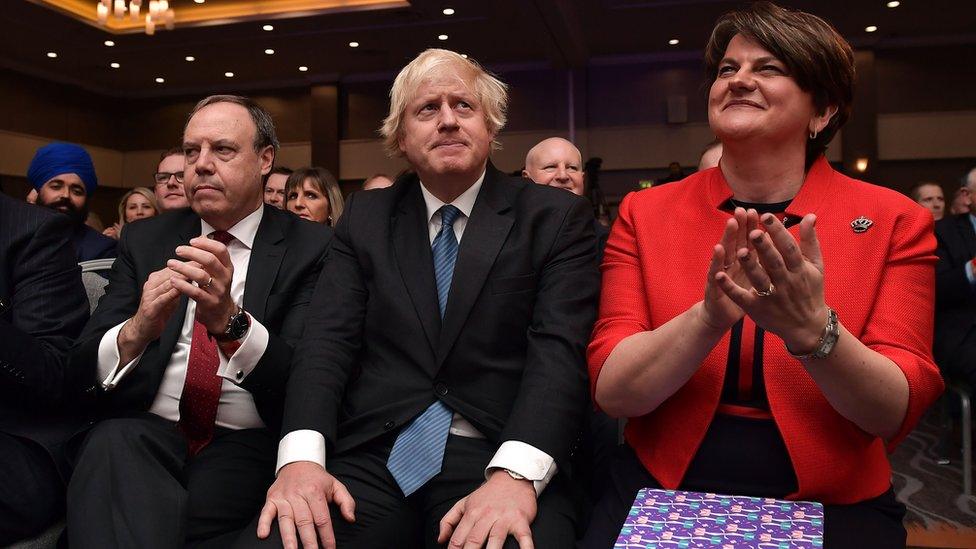
Boris Johnson sat in between the DUP leadership at the party conference last November
But it will be wary of broken promises.
At the conference, he called for the backstop to be "junked" but then voted for the agreement - including the backstop - during the third meaningful vote in March.
There's also the matter of renewing the confidence-and-supply pact.
The Conservatives needed the votes of the DUP's 10 MPs in order to have a working Commons majority after the 2017 Westminster election but had to agree to an extra £1bn in spending for Northern Ireland.
Some Johnson-backing Tory MPs, like Daniel Kawczynski, want the next PM to call a fresh election rather than continue to be at the DUP's "beck and call".
While the DUP voted against Theresa May's Brexit deal and threatened the government several times over the backstop, it is worth saying that the influence the DUP wields at Westminster is very valuable.
It will want to work with whoever becomes prime minister.
Jeremy Hunt would not be as closely aligned to the DUP as other members of his party.
But he has sought to paint himself as the candidate best placed to strengthen the union and win the backing of the DUP with a new Brexit deal.
Stormont talks process
The latest talks to try and restore power-sharing in Northern Ireland began in May.
Although talks haven't broken down, there are no signs of a political breakthrough any time soon.
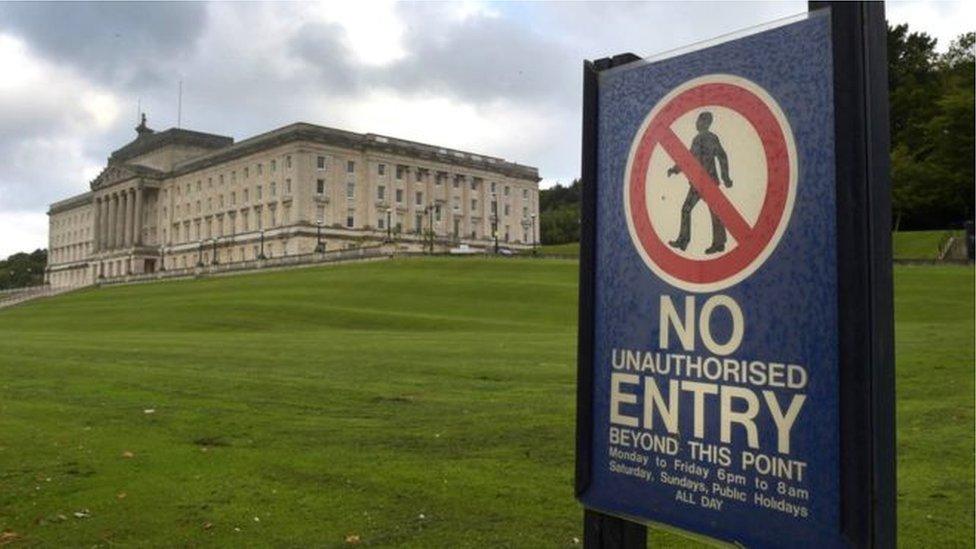
Sinn Féin and the DUP have pointed the finger at each other during the course of the talks processes
If Boris Johnson becomes PM he is likely to replace the Northern Ireland Secretary Karen Bradley - a Theresa May loyalist - with someone new.
How could that affect the ongoing talks process, which Mrs Bradley has been overseeing?
Unlike unsuccessful candidate Michael Gove, who said he would personally lead talks to restore the Stormont administration, Jeremy Hunt has not made much mention of the process.
It is not clear if he would replace his cabinet colleague Mrs Bradley in the Northern Ireland brief.
Earlier this year, Mr Hunt said the UK was wholly "committed" to the 1998 Good Friday peace agreement, external and many of the parties in Northern Ireland would be keen to see him live up to that.
A fresh pair of eyes could possibly help move the Stormont negotiations along - but it's likely to prove as difficult to resolve as Brexit.
- Published20 June 2019
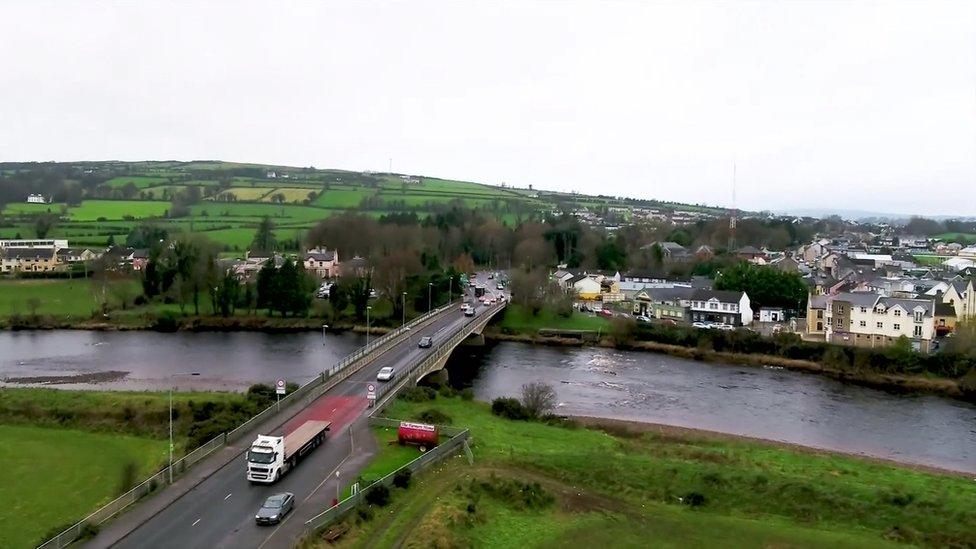
- Published20 June 2019
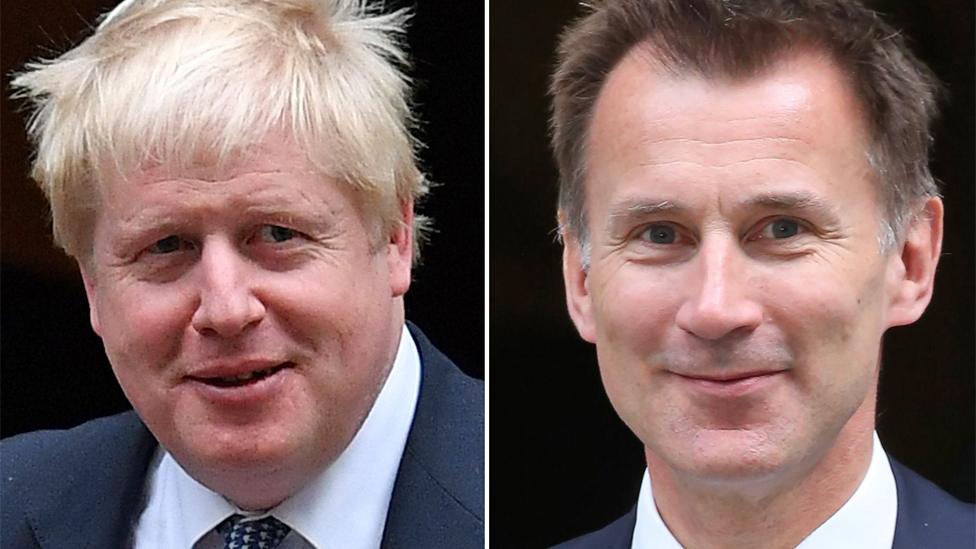
- Published14 June 2019
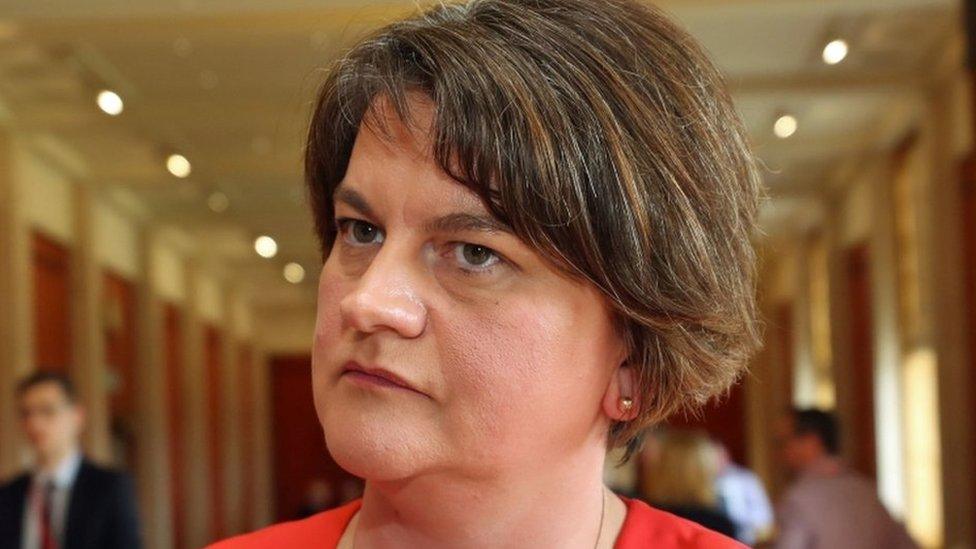
- Published11 June 2019
